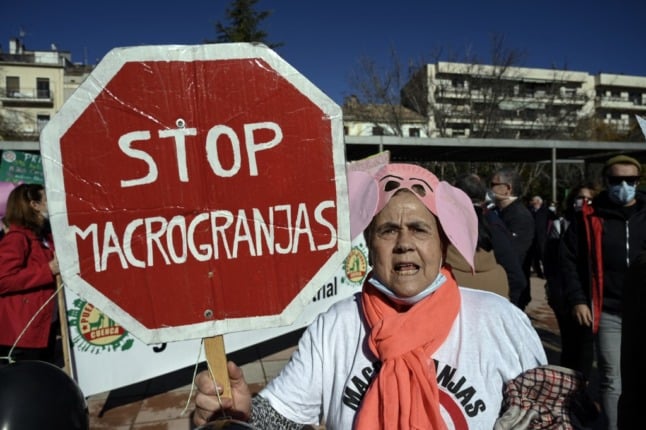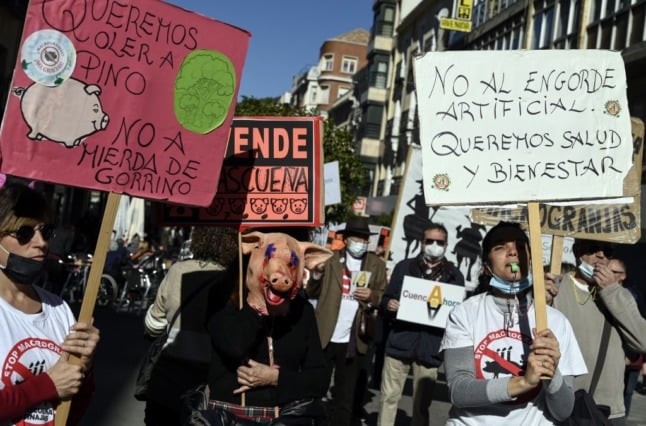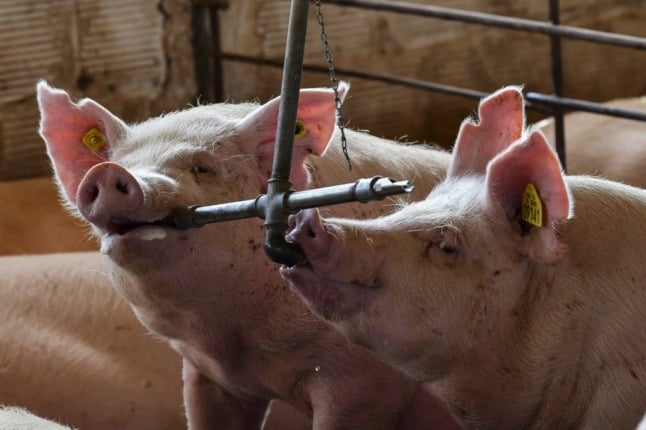His grandparents perished at Auschwitz and his father spent months oscillating between life and death after being seriously injured in a bomb attack on a Rome Synagogue in 1982.
Riccardo Pacifici has also endured years of threats against him – including a thwarted bomb plot – and in January he was the recipient of a pig’s head.
Against the backdrop of an anti-Semitic revival across Europe, the 52-year-old president of Rome’s Jewish Community has leapt to the defence of Italy’s Jews as they face persistent hostility, mostly from right-wing extremists, whether in the form of swastikas being daubed on walls or as the target of online hate speech.
The harassment is also prevalent in football: SS Lazio hooligans have long been notorious for making Nazi salutes and unfurling anti-Jewish banners during games, while late last year they emblazoned stickers across Rome showing Anne Frank, the Jewish teenager who died in the Bergen-Belsen concentration camp, wearing an AS Roma shirt in a bid to ‘taunt’ their rivals.
The memorial day for the victims of the Holocaust – January 27th – is also a time for extremists to make their feelings known: this year, boxes containing a pig’s head were also sent to Rome’s Israeli embassy and synagogue while anti-Jewish slurs cropped up on walls across the city in the days leading up to the anniversary.
In February, a human rights report by the US State Department revealed that 26 percent of Jews in Italy experienced anti-Semitic harassment in the 12 months up to November 2013.
READ MORE HERE: US report slams Italy over anti-Semitism
Yet despite all of this, Pacifici insists that Italy is “an island of happiness” for the country’s 30,000 Jews.
He is remarkably defiant, telling The Local that the only group that should be living in fear are the “Nazis” fuelling the hatred.
Jewish people in Italy “may never be able to sleep completely soundly” but in comparison to some of their European counterparts, they are safe, he adds.
“Jewish Italians are safe compared to those in places like Greece, Hungary, France and even Belgium,” he tells The Local.
In France, especially, tensions between the country’s large Muslim and Jewish communities have worsened in recent years, mainly as a result of the ongoing conflict between Israelis and Palestinians.
In the most deadly attack since a 1982 assault on a Paris kosher restaurant, a French Islamist killed a rabbi, his two sons and an eight-year-old girl outside a Jewish school in Toulouse, a city in south-west France, in 2012.
Ilan Halimi, a 23-year-old French Jew of Moroccan descent, was also kidnapped, tortured and murdered in 2006 by a group called the Gang of Barbarians.
“French Jews are in danger,” says Pacifici.
“In Paris and the south of France, in particular, if you walk around wearing the Jewish skullcap, you endanger your life….and France refuses to accept that this danger exists.”
Though Marine Le Pen, the leader of the far-right National Front, which made considerable gains in the first round of French local elections last weekend, has tried to distance the party from its previous anti-Jewish leanings, Pacifici is concerned about the party’s ascent, as well as the prominence of far-right parties in the upcoming European elections.
The groups are gaining strength off the back of Europe’s moribund economy.
Over the next week, Pacifici will meet counterparts in Vienna and London to discuss the issue.
“We’ve reached a point where we’re very worried about the rise of Nazi parties and extremism in Europe. We will be watching the EU elections very closely.”
So what makes Italy such a safe haven?
The Italian Jewish community is one of the oldest in Europe, and numbered 50,000 in 1938.
In the years leading up to the Second World War, there was thought to have been very little anti-Semitism in Italy, with Jews holding prominent positions in parliament, the military and the media. They were also allowed to joined the National Fascist Party.
The Italian dictator Benito Mussolini, having joined forces with Adolf Hitler, led the country to war alongside Germany in 1940. Jewish people living in Italy were then sent to camps including Campagna and Ferramonti di Tarsia.
READ MORE HERE: 'Ferramonti was not a death camp'
Italians refused to cooperate with the Nazis in sending Jews to German concentration camps, but this changed when, in 1943, Italy joined the Allies.
Thousands of Italian Jews then perished after the Germans invaded and sent them to Nazi death camps that year. Among them was Pacifici’s grandfather, also named Riccardo, and his grandmother, Wanda.
Pacifici also almost lost his father in a bomb attack on Rome’s main synagogue in 1982, in which a two-year-old boy was killed. The revival of Jewish hostility was sparked by the Israeli war that summer.
Since those dark times, Pacifici has noticed “deep changes” in the treatment of Jews in Italy, and for the better.
“Even from before I was involved in the movements, I’ve noticed lots of changes – it’s also evident in daily gestures,” he says.
The small size of Italy’s Jewish population, and with the majority living in Milan and Rome, means it’s relatively shielded compared to France’s community of 600,000, Pacifici adds.
“It might sound like a joke…but the possibility of meeting a Jew in Italy is much less, so this reduces the chance of attack.”
The popularity of Pope Francis has also made life for Jews easier, he adds.
“The influence of the Pope’s words carries a very heavy weight…people hear about ‘respecting others’ from him, through the media, and from their own priests; these words tend to resonate. France is also Catholic but there, the Pope doesn’t have as much influence, or as much media coverage, as in Italy.”
In addition, the condemnation of the attacks against Jews from the Italian authorities and the public outcry, as well as punishments of the perpetrators, has brought comfort to the community.
Last April, four members of the anti-Semitic group Stormfront were convicted for posting lists of Jews and Jewish-run businesses on a neo-Nazi website, while authorities have also shut down sites responsible for anti-Jewish material.
Meanwhile, seven extremists from the Militia Movement, who are accused of condoning fascism and smearing the walls of Rome with anti-Jewish graffiti, are currently on trial.
Italy’s education ministry is also making efforts to combat prejudice by funding training courses for teachers and launching an anti-Semitism course at Rome’s La Sapienza University.
“It’s evident that this path of respect has grown alongside public opinion, and the messages that come from the Vatican,” Pacifici says.
While Jewish people have left Italy in recent years, Pacifici insists that this is down to the country’s stifling economic situation rather than fear.
He said that among those who leave, most go to Israel, where the economy is thriving off the back of a technology boom.
“The economic situation has especially hit the middle class, and the situation for a Jew not being able to find work is much worse than for everyone else,” he explains.
“For example, if they’re forced to live on the outskirts of Rome, they will not find the things they need to lead a Jewish lifestyle, for example a synagogue, a Jewish school or a place to buy kosher food.
“For Jews, the Jewish way of life is very important. They would prefer a life of poverty than to lose this.”
Referring again to his description of Italy being an "island of happiness", Pacifici warns that this does not mean Jews no longer need to be vigilant.
"If you go online, especially, you see many things," he says.
"But there's a big difference today: nobody can make anti-Semitic statements, it's against the law. There is only a minority of people in Italy who hate."
"I am absolutely not worried about the Jewish community," he adds. "The group that should be worried are the Nazis."
Don't miss a story about Italy – Join us on Facebook and Twitter.





 Please whitelist us to continue reading.
Please whitelist us to continue reading.
Member comments